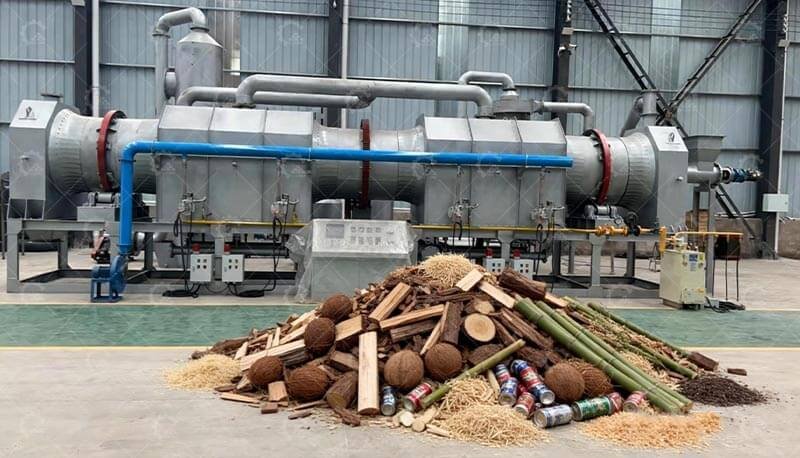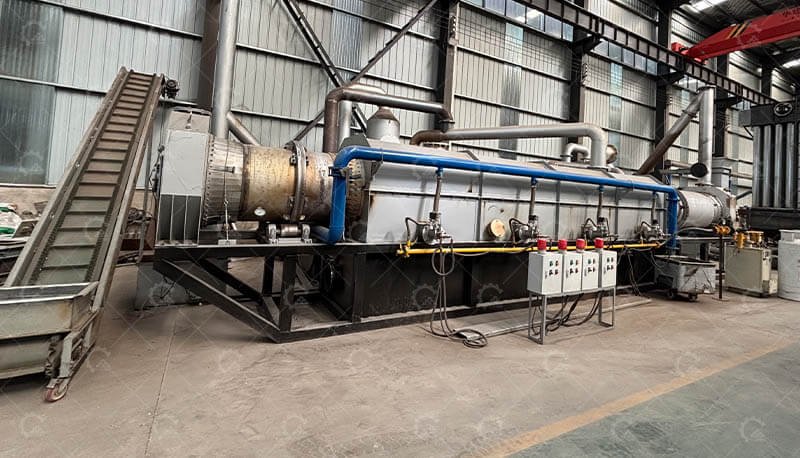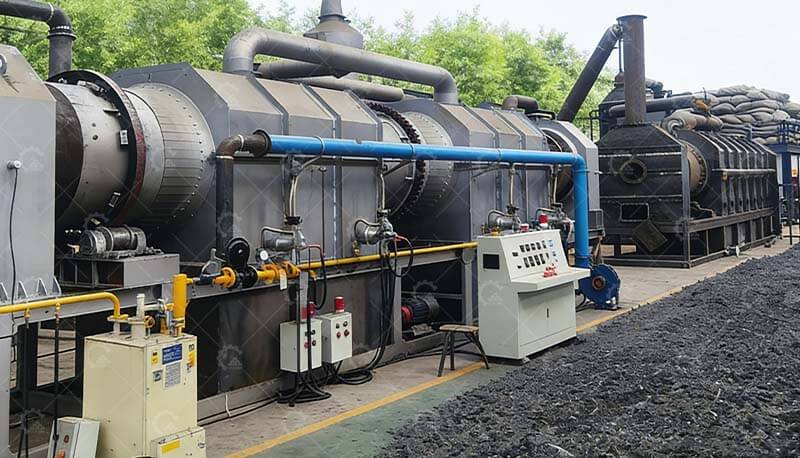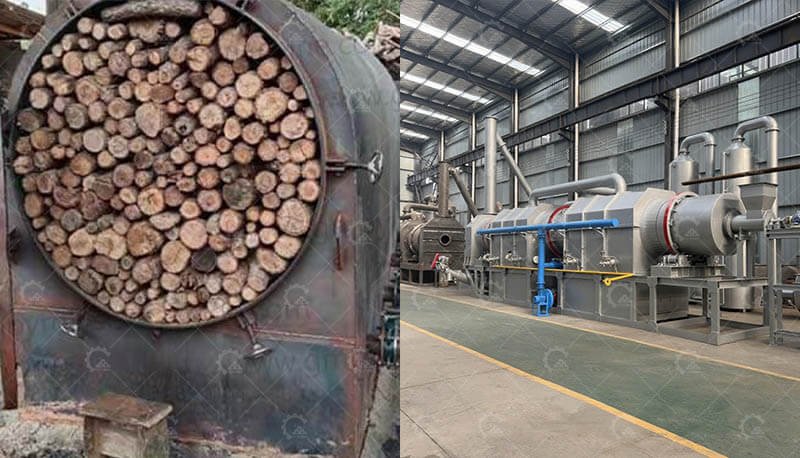In rice-producing regions, managing rice husk waste is a persistent challenge. Farmers and agro-industrial businesses often face mounting disposal costs, environmental concerns, and missed opportunities to monetize this abundant byproduct. Enter the 1.5 ton/hour rice husk coal production machine—a cutting-edge solution that converts rice husks into valuable coal briquettes, offering a sustainable, profitable path for waste-to-energy conversion.
Why Rice Husk Coal Production Matters
Rice husks account for 20% of rice harvests globally, with millions of tons discarded or burned annually. This not only wastes a reusable resource but also contributes to air pollution. A rice husk charcoal making machine addresses these issues by:
Reducing Waste: Convert husks into marketable coal.
Lowering Carbon Footprint: Replace fossil fuels with renewable energy.
Generating Revenue: Tap into growing demand for eco-friendly fuel in industries and households.
How the 1.5 Ton/Hour Rice Husk Coal Production Machine Works
This fully integrated system automates the conversion process through four key stages:
1. Crushing & Drying
Raw rice husks are crushed into uniform particles (3–5mm) for consistent processing.
A rotary dryer reduces moisture content to 8–12%, ensuring efficient carbonization.
2. Carbonization
The biomass carbonization furnace heats husks to 450–600°C in an oxygen-free environment, breaking down organic matter into charcoal.
Combustible gases (e.g., methane) are recycled to fuel the furnace, cutting energy costs by 30–40%.
3. Briquetting
A high-efficiency coal briquette machine compresses carbonized powder into dense, uniform briquettes using hydraulic or screw pressure.
Optional molds create shapes (hexagonal, pillow) tailored to client needs.
4. Cooling & Packaging
Briquettes are cooled to prevent combustion risks.
Automated packaging ensures ready-to-sell products.
Key Benefits of a 1.5 Ton/Hour Production Line
High Output, Low Labor: Produce 1.5 tons of coal hourly with minimal supervision.
Energy Efficiency: Gas recycling and insulated furnaces reduce power consumption.
Versatility: Process other biomass (sawdust, coconut shells) for diversified product lines.
Eco-Compliance: Meets emissions standards (CE, ISO) and supports CSR initiatives.
Applications of Rice Husk Coal
The end product serves multiple industries:
Industrial Fuel: High-calorific briquettes power boilers, kilns, and steel plants.
BBQ Charcoal: Odorless, long-burning coal for grilling.
Activated Carbon: Purify water or air in treatment facilities.
Rural Energy: Affordable fuel for heating and cooking in off-grid communities.
Choosing the Right Machine: 5 Tips for Buyers
1. Assess Automation Levels: Opt for PLC-controlled systems for precision and ease of use.
2. Verify Material Compatibility: Ensure the machine handles high-silica rice husks without wear.
3. Prioritize After-Sales Support: Choose suppliers offering installation, training, and spare parts.
4. Check Certifications: Look for CE, ISO, or EPA certifications for quality assurance.
5. Request a Trial: Test the machine with your raw materials to verify output quality.
Maintenance Tips for Peak Performance
Clean the carbonization furnace weekly to prevent residue buildup.
Inspect electrical components for moisture damage, especially in humid climates.
Replace briquetting molds annually to maintain product consistency.
FAQs About Rice Husk Coal Machines
Q: What’s the ROI timeline for a 1.5 ton/hour machine?
A: Most businesses recoup costs in 12–18 months, depending on local coal prices and operational scale.
Q: Can the machine process wet husks?
A: Yes, but drying is required. Integrated dryers streamline this step.
Conclusion: Transform Waste into Wealth
Investing in a 1.5 ton/hour rice husk coal production machine unlocks a dual opportunity: solving agricultural waste challenges while capitalizing on the renewable energy boom.
Ready to explore your options? Contact us today for a customized quote and see how our rice husk charcoal production solutions can elevate your operations!







